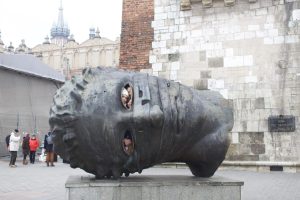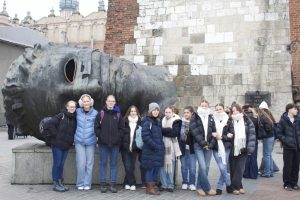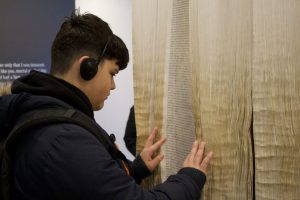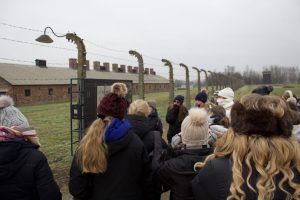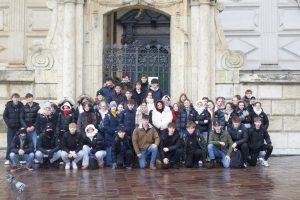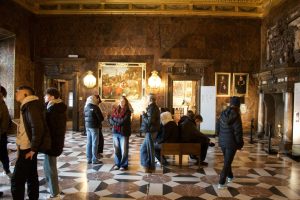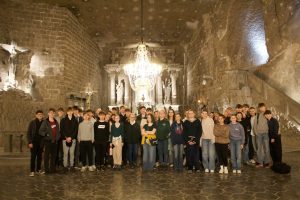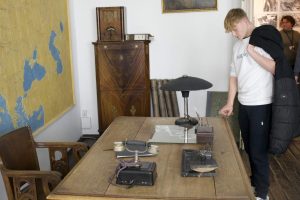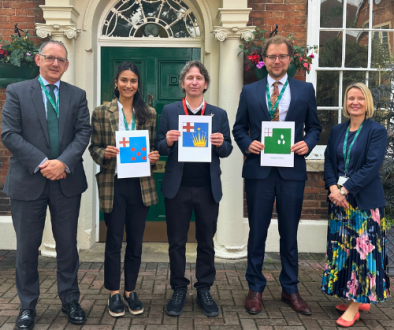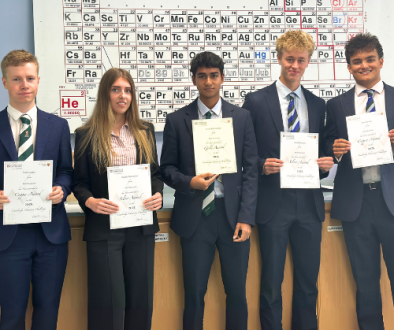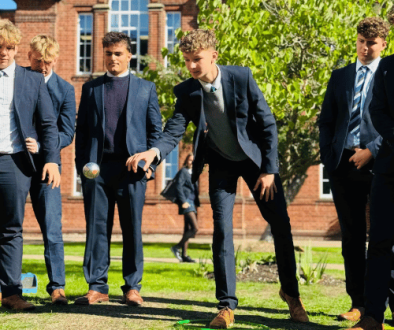Lessons in Humanity in Poland
In December, fifty Year Eleven pupils embarked on an educational journey to Kraków, Poland, where pupils and staff explored the rich history and cultural heritage of this remarkable city as well as the jarring realities of its links to one of the worst atrocities in human history. The itinerary included significant historical sites, offering participants a unique opportunity to engage with the past and reflect on its impact on the present.
The tour commenced with a guided exploration of Kraków’s Old Town and the Jewish Quarter. Pupils wandered through the cobbled streets, absorbing the vibrant atmosphere and learning about the city’s history. The highlight of this segment was a visit to the historic Ghetto Heroes Square, a poignant memorial to the 68,000 Krakow Jews murdered after the liquidation of the Jewish ghettos. Pupils also visited Schindler’s Factory Museum, where they learned about Oskar Schindler’s remarkable efforts to save Jewish lives during World War II. The museum, housed in the former enamelware factory, offered a compelling narrative of courage and humanity amidst the darkness of war. Pupils were moved by the exhibits that chronicled the experiences of those who lived through this period, reinforcing the significance of standing against injustice and advocating for human rights at every stage of prejudice and discrimination.
One of the most impactful experiences of the trip was the visit to Auschwitz I & III Memorials. The group arrived early to confront the stark realities of history. As they walked through the gates of this former concentration camp, the weight of the past was palpable. The guided tour, which spanned both Auschwitz I and Auschwitz Birkenau III, provided a sobering insight into the atrocities committed during the Holocaust. Pupils listened intently as their guide shared harrowing stories of the lives lost and the suffering endured by millions. This visit served as a powerful reminder of the importance of remembrance and the need to ensure that such horrors are never repeated.
In addition to these solemn visits, there were plenty of opportunities to explore the culture and atmosphere of one of Europe’s most beautiful cities. An evening meal and concert at Ariel Restaurant, where the group enjoyed traditional cuisine accompanied by Klezmer music. This experience allowed pupils to appreciate the vibrant Jewish culture that once thrived in Kraków, gaining a deeper understanding of the city’s heritage. Tours of Wawel Castle and the Wieliczka Salt Mines not only gave the pupils a taste of Krakow’s historical and cultural importance and the city’s beauty but also a chance to reflect on the lessons learned from the more sombre visits of the trip.
We hope that as the pupils returned home, they could carry with them memories of the sights and sounds of the city and a renewed commitment to remembering history and promoting tolerance and understanding of other religions, races, ideas, and ways of being.
Mr Dominic Breffit, Head of Philosophy and Religion

